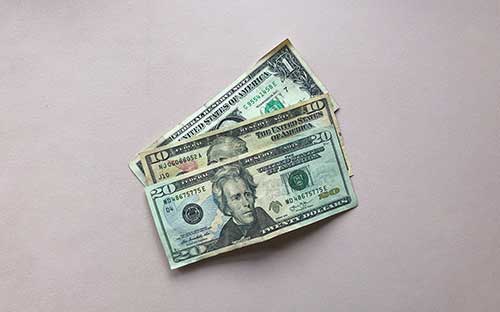
So, you’ve finally saved up a nice little nest egg. You’ve resisted the siren song of daily lattes, swiped left on impulse purchases, and watched your savings account grow like a proud parent. Now, you’re faced with a classic financial dilemma: should you use your hard-earned cash for a bigger down payment on your dream home, or keep it stashed away for those rainy days that Murphy’s Law promises are coming?
Let’s dive into this conundrum with some wisdom and a splash of practical advice.
The Case for a Bigger Down Payment
Ah, the sweet allure of a bigger down payment. It’s like the golden ticket to lower monthly payments, better loan terms, and possibly even avoiding the dreaded private mortgage insurance (PMI). Who wouldn’t want that? If you can put down 20% or more, you’re not just buying a home—you’re flexing your financial muscles.
But before you go all-in, ask yourself: is this your “forever home” or just your “for-now home”? Throwing every last cent at a bigger down payment might not be wise if you’ll move in five years. Remember, your house isn’t just a place to live; it’s also an investment. You want to balance building equity and keeping enough liquidity to sleep at night.
The Case for Keeping Your Emergency Fund
On the flip side, life is unpredictable. Just when you think you’ve got it all figured out, your car’s transmission gives up, your dog swallows something expensive, or your boss decides that your company’s “restructuring” doesn’t include you. That’s why keeping an emergency fund is non-negotiable.
Experts recommend setting aside three to six months’ worth of living expenses. Let’s be real. Those experts have probably never priced out a root canal or an unexpected flight home for a family emergency. So, it’s not just about math; it’s about your peace of mind.
If putting down a bigger down payment drains your emergency fund to dangerously low levels (or worse, wipes it out), you’re essentially gambling on nothing going wrong. And as we all know, life loves to throw curveballs.
The Third Option: Why Not Both?
Here’s a radical idea: why not split the difference?
Instead of depleting your savings entirely for a bigger down payment, consider putting down enough to improve your loan terms without compromising your financial safety net. For example, you might aim for 10–15% down and keep the rest as a cushion for life’s surprises.
Another option? Build a hybrid strategy. Use part of your savings for a bigger down payment, but replenish your emergency fund over time with aggressive saving. It’s not as instant-gratification-friendly as dropping all your cash on the house, but it’s a balanced approach that can keep you financially and emotionally secure.
Factors to Consider
- Job Security: If you’re in a stable career with consistent income, you might feel comfortable leaning toward a bigger down payment. But if your paycheck depends on the whims of the gig economy or a flaky boss, prioritize your emergency fund.
- Interest Rates: If interest rates are historically low (like they have been in recent years), a smaller down payment might make sense. Your money might grow faster in investments or a high-yield savings account than you’d save on interest payments.
- Future Plans: If you plan to start a family, go back to school, or take a sabbatical, keeping some cash on hand might outweigh the benefits of a bigger down payment.
- Your Risk Tolerance: Some people sleep soundly with just $500 in their checking account. Others panic if they have less than $50,000 in savings. Know thyself.
Final Words
Ultimately, the decision boils down to your unique circumstances. If you feel confident in your job and have a rock-solid budget, a bigger down payment could set you up for financial success in the long term. But if the thought of draining your savings gives you hives, it’s okay to prioritize your emergency fund.
Remember, buying a home is a big deal—but so is peace of mind. The key is to strike a balance between being financially responsible and not living in a state of perpetual anxiety. After all, what’s the point of having a house if you can’t afford to furnish it or, you know, fix it when the roof starts leaking?
So, whether you choose the path of the bigger down payment or the emergency fund, the goal is building a secure and sustainable life. And hey, if you’re still unsure, maybe it’s time to consult a financial advisor—or at least flip a really big coin.
The post Should You Use Your Savings for a Bigger Down Payment or Keep it for Emergencies? appeared first on MoneyMiniBlog.
